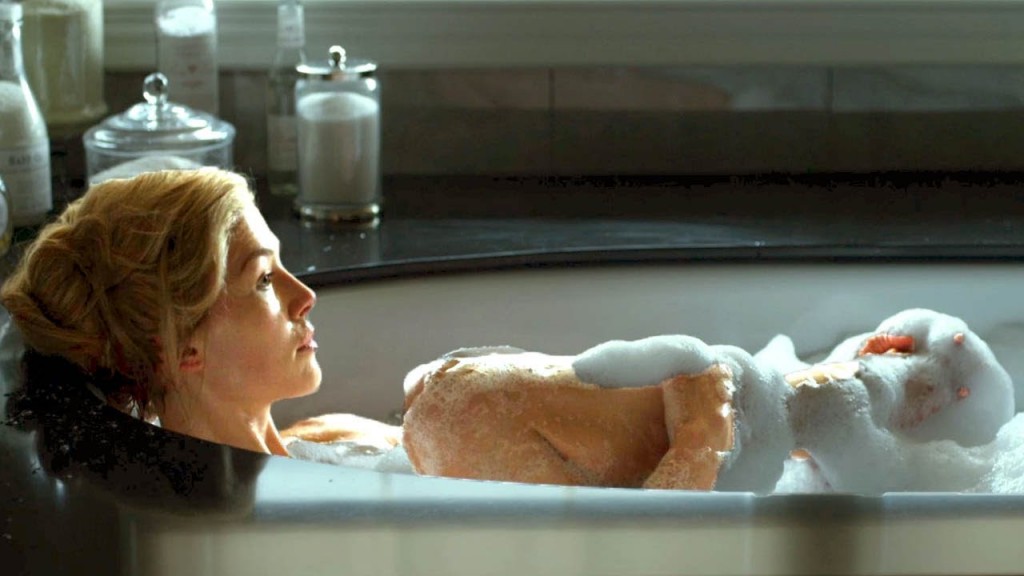David Fincher’s new film Gone Girl, based on the novel by Gillian Flynn, tells the story of a resentful marriage that devolves into lies and gore. The film may not be as cinematically stunning as past Fincher film Girl with the Dragon Tattoo, or have the intense character study boasted in The Social Network; however, Gone Girl hums along gracefully as its plot unfolds and drops unexpected twists, and Fincher’s polished vision and skill make it an engaging film.
Ben Affleck and Rosamund Pike play Nick and Amy Dunne, a young and beautiful couple living in Missouri whose lives are shaken up when Amy disappears and Nick becomes the prime suspect. Affleck as the affable but unlikable Nick is convincing—his pretty smile never extends to his eyes, which hint at darker intentions. Pike’s performance as Amy exhibits both personas of victim and aggressor and is one of the highlights of the film. Neil Patrick Harris, Tyler Perry, and Carrie Coon are also excellent, enhancing the movie in their supporting roles. Trent Reznor—of Nine Inch Nails—and Atticus Ross’s score help create a falsely soothing atmosphere, suddenly erupting when everything we’ve been led to believe comes crashing down.
This film deals with the stereotype of beaten wife and unfaithful husband, coming out at a time when domestic violence scandals are at the forefront of the media. Usually when we hear about domestic abuse, it’s a case of a man beating a woman—we don’t often see the opposite. The idea that men are aggressors and women are victims is so ingrained in our heads that we expect it. This is a perception that Gone Girl explores, showing how our view of people is often formed without real knowledge of who they are. Nick Dunne is suspected of beating and murdering his wife because of his infidelity and hints of Amy as a victim. As a consequence, hordes of reporters and news shows are dedicated to defaming and harassing him.
However, Gone Girl does not entirely fool us into believing that Nick is the abusive husband that we so often see in the press and film. Nick is set up from the start as the audience’s most relatable character: He takes care of his cat diligently, he has a loving relationship with his sister, and the most telling sign that the viewer is meant to sympathize with him is the unreliability in Amy’s voice-over narration. The affected tone in which she speaks and the quick descent from inattentive to violent spouse that she pins on Nick is almost too perfectly-crafted to believe. What could have been a more nuanced and dynamic film falls short and only really offers one side to understand and relate to. This takes away the mystery of Gone Girl. From the beginning of the film, we’re heavily guided to side with Nick and question Amy.
Propelled by Fincher’s meticulous directing and solid performances from its actors, Gone Girl is an excellent film that immerses us in a story where media speculation and well-known tropes of love and relationships are tested. The film isn’t perfect—the first third plays out slowly and it runs about 20 minutes too long—but it does further solidify the fact that Fincher makes good films. Gone Girl doesn’t quite match up to his previous work, but does move with precision through the steps of good storytelling.








